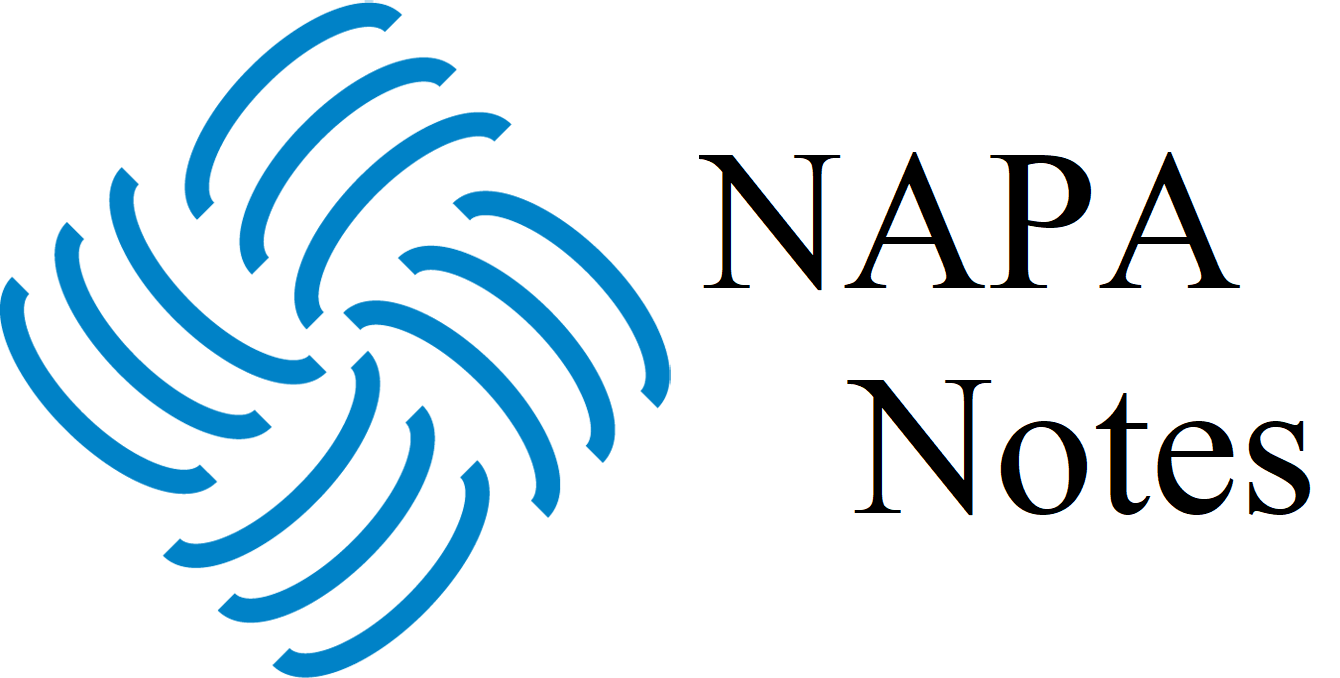National Association for the Practice of Anthropology
 Apply Now
Apply Now
Mentor program




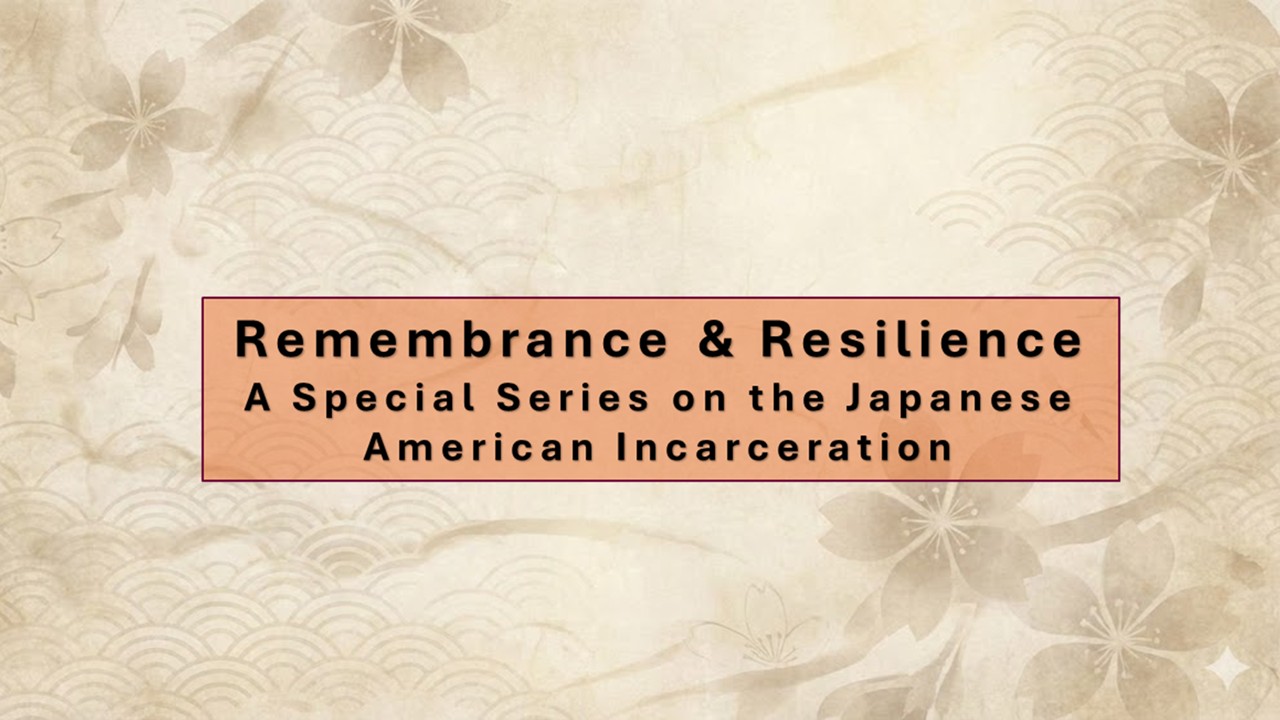
Remembrance & Resilience
We are pleased to invite you to Remembrance & Resilience, a special series hosted at the Society for Applied Anthropology (SfAA), co-sponsored by the National Association for the Practice of Anthropology and supported by the
Recent Posts
Welcome To NAPA
NAPA promotes human-centered work applied to practical problems by linking a network of professional anthropologists working across employment sectors. We support all anthropologists in bringing real solutions to communities, organizations, and policymakers, by offering advocacy, information, networks, mentoring, and continuing education.
NAPA NOTES
Annals of Anthropological Practice
cURRENT iSSUE
ORIGINAL ARTICLES
- “Il gioco” as collaborative method: Feminist and antiracist musings on the power of play
Megan A. Carney, Sara Vannini, Alessio Genovese, Daniele Saguto, Muhammed Jammeh, Ibrahima Deme, Alma Fantin Understanding familial resemblance of fingerprints: Forensic and anthropological aspects
Akansha Rana, Damini Siwan, Akashdeep Vashisht, Kewal Krishan
PRETTY WORDS
ENTERPRENEURSHIP AND ANTHROPOLOGY
Anthropology and Entrepreneurship Research: Introduction to the 2023 Symposium Papers
Patricia L. Sunderland, Edward LiebowGluten-free entrepreneurship and the management of celiac
Suzanne OakdalePerforming and evaluating creditworthiness: Bank loans and the financial inclusion of micro/small enterprises in China
Han TaoBeyond the GenAI gold rush: Mapping entrepreneurial tensions in the age of generative artificial intelligence
Matt Artz, Yaya Ren
LEGACIES OF ANTHROPOLOGICAL FIELD SCHOOLS
The intertwined legacies at the heart of ethnographic field schools: A case from the NC State University Guatemala field school
Tim WallaceLegacy of the ethnographic field school in Belize
Douglas W. HumeThe afterlife of CoPED: Entanglements and impacts of a participatory learning field school in Sicily
Amanda Katherine Lambert-PenningtonLegacies of the OSEA ethnography and Maya language field school (1997–2023)
Quetzil E. CastañedaReflections on a critically-applied anthropology of conservation and tourism field school in Honduras’ Bay Islands
Keri Vacanti BrondoA research and publication-oriented undergraduate ethnographic field school: The BYU experience in Guatemala
Walter Randolph Adams, John P. HawkinsAutoethnographic Assessment of the Trajectory and Legacy of a Field School in The Gambia, West Africa: PEACE, Praxis, and People
Bill Roberts
Imagine not knowing where your next meal will come from, or not being able to feed your child a healthy breakfast before sending them off to school, or not being able to satisfy your growling stomach before a midterm exam. For 600,000 food insecure individuals in the Tampa Bay, Florida, area, these are real issues that they must tackle in their everyday lives.
The US Department of Agriculture refers to food insecurity as the lack of reliable access to enough nutritionally adequate food for an active, healthy life for all household members. People who suffer from hunger are diverse, often from hardworking families, and include children, teenagers, senior citizens, veterans, and even college students.
Karen Díaz Serrano | November 19, 2020

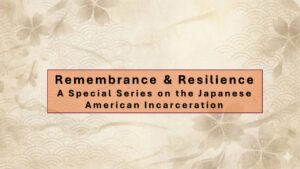
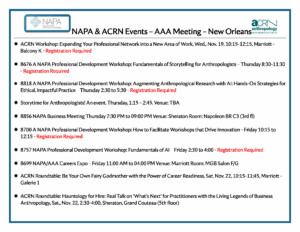
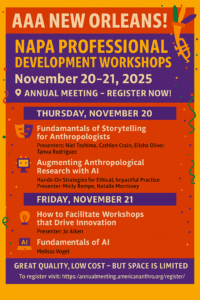

![[NAPA Logo] sNAPAshots: Conversations with Professional, Practicing, and Applied Anthropologists. Riall Nolan, PhD. Professor of Anthropology, University of Purdue. PracticingAnthropology.org Twitter, Meta, LinkedIn Logos](https://practicinganthropology.org/wp-content/uploads/October-2024-sNAPAshots-Nolan-300x300.png)

![[NAPA Logo] sNAPAshots: Conversations with Professional, Practicing, and Applied Anthropologists. Alberto Bouroncle, PhD, Principal Consultant, Kavali Consulting, LLC PracticingAnthropology.org Twitter, Meta, LinkedIn Logos](https://practicinganthropology.org/wp-content/uploads/sNAPAsots_AlbertoBouroncle-300x300.png)
![[NAPA Logo] sNAPAshots: Conversations with Professional, Practicing, and Applied Anthropologists. Elizabeth K. Briody, PhD. Founder and Principal. Cultural Keys, LLC. PracticingAnthropology.org Twitter, Meta, LinkedIn Logos](https://practicinganthropology.org/wp-content/uploads/August-2024-sNAPAshots-Briody-300x300.png)
![[NAPA Logo] sNAPAshots: Conversations with Professional, Practicing, and Applied Anthropologists. Yaya Ren, Ph.D. Founder | CEO | Chief Anthropologist, PreeMe+You. PracticingAnthropology.org Twitter, Meta, LinkedIn Logos](https://practicinganthropology.org/wp-content/uploads/YaYaRen_sNAPAshots-300x300.jpeg)

